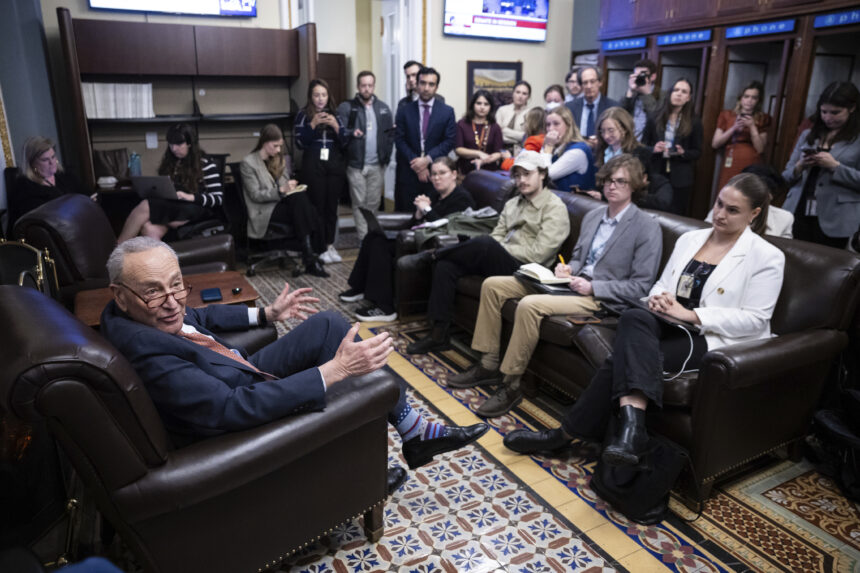Senate Democratic leader Chuck Schumer faced backlash from members of his own party after siding with Republicans on a government funding bill. The criticism spread quickly beyond the left flank, with Rep. Glenn Ivey of Maryland suggesting it might be time for Senate Democrats to find a new leader. Even prominent figures like Illinois Gov. JB Pritzker and Minnesota Gov. Tim Walz expressed frustrations, and former Speaker Nancy Pelosi criticized Schumer for giving away leverage.
The drumbeat of criticism has extended from activist groups and progressive members of Congress to the party’s political center and potential 2028 contenders. As Democrats struggle to push back against Republican dominance in Washington, voices from different sectors of the party have joined in the chorus of disapproval.
Despite the mounting criticism, Schumer defended his decision as necessary to avoid a government shutdown and protect American workers. He emphasized the dire consequences of a shutdown compared to the flaws in the funding bill. Schumer highlighted his political acumen and ability to gauge public sentiment, reaffirming his commitment to serving the interests of ordinary Americans.
While some Democrats have called for a change in leadership, others believe these disagreements are part of the party’s dynamics. Democratic strategist Darry Sragow sees these conflicts as inherent to a party that prioritizes the well-being of working Americans. Schumer and his colleagues continue to focus on messaging against President Donald Trump, aiming to highlight their accomplishments and future plans.
Despite calls for leadership change, Schumer’s Senate colleagues maintain their support for him. Sen. Chris Murphy of Connecticut believes Schumer can lead the caucus but acknowledges the need for internal discussions on standing up to Republicans. As the party navigates internal divisions and external challenges, the future of Democratic leadership remains a topic of debate.
In the midst of this turmoil, Schumer remains resolute in his approach, determined to confront President Trump and advance the party’s agenda. The ongoing tensions within the Democratic Party underscore the complexities of governing in a politically polarized environment.








